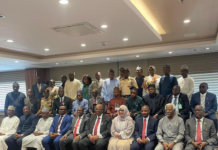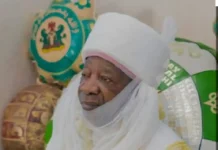Pantami: The Imperative of Fact-Checking In New Media Reportage, By Inyene Ibanga
POLITICS DIGEST – It is not news that a Daily Independent newspaper story with the headline, “Disquiet As America Places Nigerian Minister On Watch List”, claimed that the Minister of Communication and Digital Economy, Dr. Isa Pantami, had been placed on the terrorism watch list of America’s intelligence service.
The story went viral as several media organisations rushed to push the story to satisfy the desire for ‘content’ that tickles the fancy of their various audiences in cyberspace.
But, today it is news that Daily Independent has retracted the story and tendered an apology to the Minister. This followed its confession that the story was fake news.
Daily Independent admitted that, “We have since realised that the information contained in the story has not been verified to be true.” It declared that “The Minister mentioned in the story, Dr. Isa Pantami, is not known to be on American Terror Watch List, nor is he linked to terror organisations.”
Later some online media claim that Pantami was involved in a plot to assassinate a former Kaduna State Governor Patrick Yakowa more a decade ago.
Not only was this latest allegation faulted by Christian Association of Nigeria (CAN), Nigerian Supreme Council for Islamic Affairs (NSCIA) among othe groups, it was described as most distasteful and inciting reportage that could breach national security.
Fake news/disinformation is now an integral part of the digital life. It is ubiquitous, it has taken on a life of its own and it possesses the power to create conflict and chaos in the environment.
In fact, the spread of false information, fake news, disinformation and misinformation is linked to the use of social media and the increasing loss of trust in public or government sources in Nigeria.
Also, a growing proportion of consumers are using smartphones as their primary means of online access and more people are now favouring professional media outlets over social media.
Ironically, emerging technology happens to be the double-edged sword that both promotes and prohibits the spread of the menace of fake news. This is so because social media sites have the capacity to rapidly share and spread content among subscribers across geographical distances.
In the digital environment, content can be shared quickly and easily, and in the process, inaccurate and outright fake stories can rapidly find their way to the screens of mobile users at everywhere and anytime.
Technology and innovation offer users the choice of applying these as tools for creating growth or imperilling society. As such, technology should be used to propagate the truth and the fact as they relate to each specific situation and the persons involved.
While many people use these technologies to disseminate falsehood or fabricate insidious narratives, media organisations have the responsibility for peace and stability.
Read Also:
Therefore, Daily Independent ought to have done the needful in verifying the authenticity or otherwise of the story before going to press. Yes, they have expressed their regret over the avoidable blunder.
Despite massive awareness about the evils of fake news, digital technology provides opportunities for the menace to grow. Hence, it is imperative for media organisations and individuals to painstakingly use fact-checking technologies to verify content before they are shared.
Fake news/disinformation has eaten deep into the fabric of every society. And it is here to stay as more sophisticated digital tools/devices continue to hit the market.
But, fact-checking sites and applications abound on the internet for verifying every form of digital content and documents in cyberspace. There are various digital resources to facilitate the verification of content on the internet.
A simple tour of the internet provides access to the many fact-checking websites existing in different regions of the world. Those sites provide services on both political and non-political subjects.
The International Fact-Checking Network (IFCN) at Poynter promotes excellence in fact-checking as a powerful instrument of accountability journalism, while AfricaCheck is the first independent fact-checking site in Africa.
Dubawa, FactCheckNigeria, and FactCheck Hub are among the different verification and fact-checking sites accessible to media organisations and others.
The latest fact-checking tools for news publishers combine artificial intelligence and crowd-sourcing to help reporters confirm the veracity of all types of content. They are invaluable to organisations with the primary mission of news and information.
If Daily Independent had visited any of the verification sites, the embarrassing situation would not have arisen at all. Still, the inherent lessons from this fiasco must be imbibed by every news and content production enterprise.
With every sense of responsibility, I appeal to the Minister of Communication and Digital Economy, Dr. Isa Pantami to accept the apology tendered by the Daily Independent.
I trust that the minister would continue to pursue Nigeria’s digital transformation project in his characteristic transparency and accountability that is most evident in the initiatives undertaken by the National Information Technology Development Agency (NITDA) and other agencies under his ministry’s supervision.
As a matter of urgency, the minister should support NITDA to strengthen collaborations with the media by organising regular training on digital reportage for media practitioners just like the just concluded workshop for journalists and social media influencers which held in Kano.
The National Centre for Artificial Intelligence and Robotics (NCAIR) can do well by creating a department for verification and fact-checking of video, audio, pictures, and documents to help curb the menace of fake news and disinformation in Nigeria.
Inyene Ibanga writes from Wuye District, Abuja

















